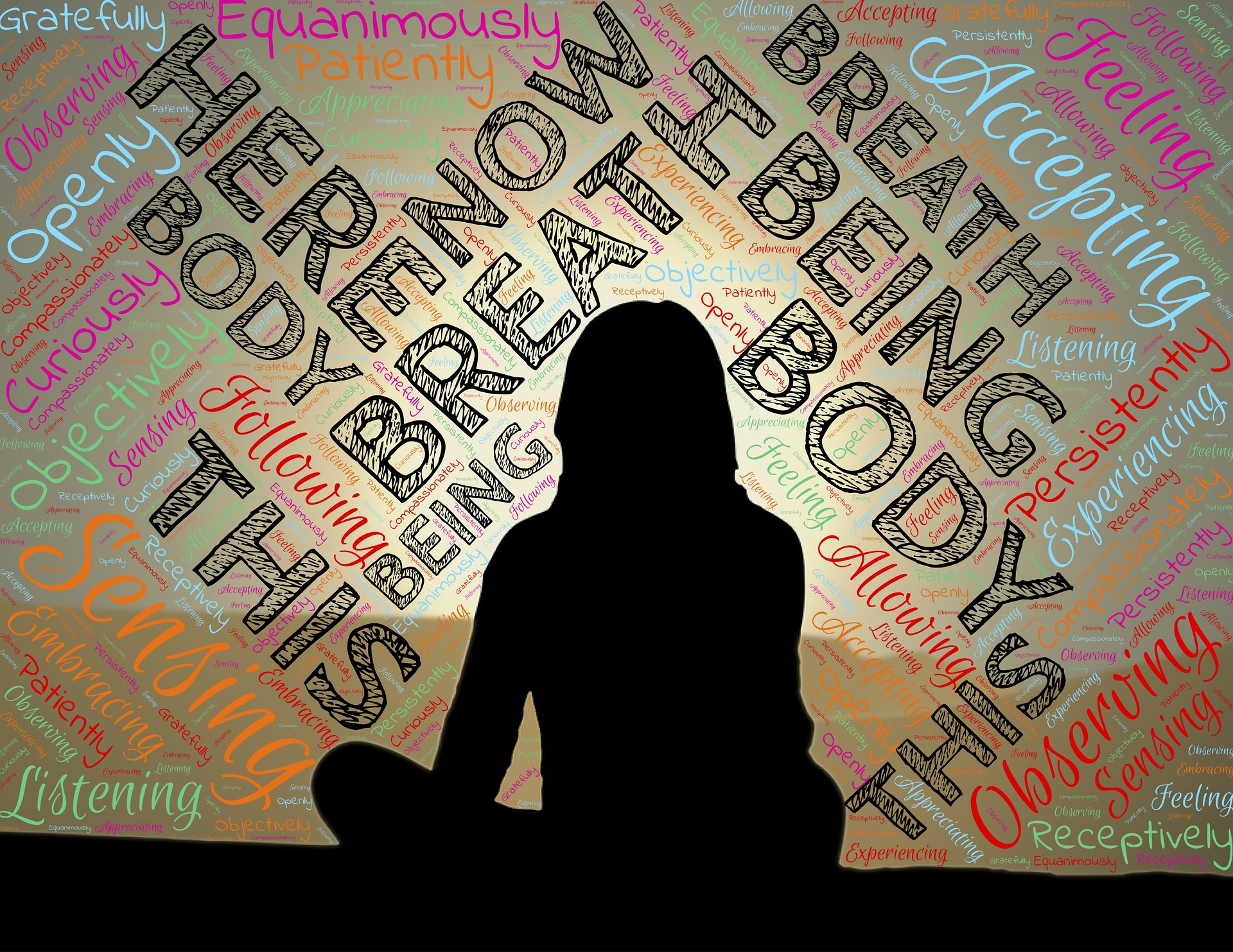Mindfulness. An extremely popular buzzword that has hit all health and wellness media in the past five years.
What is Mindfulness and Why Should We Incorporate It in Our Lives?
The Oxford dictionary describes mindfulness as “a mental state achieved by focusing one’s awareness on the present moment, while calmly acknowledging and accepting one’s feelings, thoughts, and bodily sensations, used as a therapeutic technique.” Essentially, mindfulness is being more aware in the present. Sounds pretty simple, right? This heightened sense of awareness can add to our life in many ways and can be incorporated easily into a busy schedule.
Mindfulness allows us to accept all emotions, even painful, allowing us to understand and embrace them rather than avoiding them or keeping them in. It also helps with emotion regulation as it allows us to be more aware of our emotions and the emotions of the ones around us, giving us more clarity when taking action. This aligns directly with Emotional Wellness, which is the awareness and acceptance of emotions. Improving this sector of Wellness can having many physical and mental benefits.
Some of the benefits of practicing mindfulness includes decreased stress and sadness, increased levels focus and happiness, improved sleep, lower blood pressure and many other benefits. Mindfulness has also been proven to increase one’s ability to deal with illness, overall increasing their lifespan. For students specifically, a study has found students who practiced mindfulness reported improvements in a wide range of areas, including decreased reactivity, increased curiosity and affect tolerance, improved patience, and self-acceptance, and enhanced relational qualities. Multiple studies have also shown that mindfulness has improved academic performance as well.
Mindfulness may seem like meditation, but it is actually different. Meditation is just one immersive way to practice mindfulness, while mindfulness is a lifestyle and a constant practice. While we do recommend you practice meditation (which would take a whole other blog post to dive into), meditation doesn’t necessarily appeal to someone with a busy schedule. There are a variety of ways you can practice mindfulness while performing regular everyday tasks, making it easy to integrate as a daily practice.
Go on a Mindful Walk
Walking is something we do every single day, making it automatic. Bringing awareness to this action from time to time can increase feelings of gratitude and improve mental clarity. To walk mindfully, focus your attention on the actual experience of walking. Put your phone and headphones away to avoid distraction. Feel the ground beneath you as you walk. Notice the sights, the sounds, the smells and the feel of the space around as you move through it.
Mindfully Eat a Meal or Snack
With such busy schedules, its easy to scarf down food while watching Netflix, scrolling through social media, or looking over notes from class. Try to appreciate the act of eating and how it is nourishing and fueling your body. To practice this, engage in eating the meal without any distractions. Focus on the taste, smell and feel of the food. If your mind strays from the meal, gently focus your attention back to the act and the emotions that may come with that. Allow yourself to feel any emotions that may arise. You could also do this with drinks, such as your daily coffee or cup of tea.
Mix Up Your Routine
Take a different route to class, study in a different location, prepare a lunch you’ve never had, or try out a different coffee shop. These little switch ups will not only make your life more exciting and interesting; they can make you more mindful. When in new environments or new situations, we are automatically more mindful as we take in new sights, smells, sounds, tastes and feelings. This increased level of awareness can provide mental clarity and bring fulfillment.
Converse Consciously (Mindfully Speak and Listen)
This one is much harder than you may think. When conversing with someone, rather than thinking of your response while the other person speaks, simply listen. Not only does this create space in the conversation, it allows you to see the other person’s perspective and be more thoughtful in your response. This enhances your awareness and understanding and makes the other person in the conversation feel significant and heard. By not interrupting or anxiously waiting till the other person finishes to get your thoughts, you are letting that person know that their thoughts and their feelings matter. Mindfulness has the power to deepen relationships, who knew?!
Mindfully Clean
Cleaning could mean many different things, such as washing dishes, taking a shower or bath, dusting your blinds, vacuuming your room, etc. These activities aren’t necessarily desired, but they are valued because they improve personal hygiene and the space around you. Try doing these tasks a bit slower than you usually do. Focus your entire attention on what you’re doing and be aware of your body movements and senses. You may find a new sense of gratitude for such menial tasks.
Do a One Minute Body Scan
You can do this trick just about anywhere when you have a minute or two to spare. Focus on your breath, deeply inhaling and exhaling. If you find your mind wandering, incorporate silent counting to keep your mind focused on the task at hand. Do a quick body scan at the end of this practice, moving different parts of the body from head to toe. Starting with wiggling your toes, counting to five silently, then move to rolling the ankles, counting to five silently, flexing the calfs, etc. This practice not only increases bodily awareness, it also reduces anxiety. It allows the mind to take a “time out” from all the hustle and bustle.
Mindfulness can provide incredible benefits for all ages, and studies upon studies prove it. It is one of the greatest remedies for stress relief, especially for stressed college students. Use these small yet effective ways to incorporate mindfulness into your busy schedule for some possibly life-changing results.




0 Comments